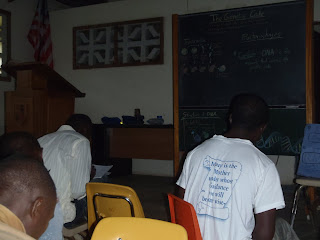These are the words of Jesus spoken to St. Margaret Mary, a humble Visitation nun in France in the 1670’s. Here is where Christ chose to reveal this special form of devotion. Now, two things are always found together in the devotion to the Sacred Heart: Christ’s Heart of flesh and Christ’s love for us.
In the Office of Readings for this Solemnity, Saint Bonaventure writes:
The blood and water which poured out at that moment [when the soldier pierced his side] were the price of our salvation. Flowing from the secret abyss of our Lord’s heart as from a fountain, this stream gave the sacraments of the Church the power to confer the life of grace, while for those already living in Christ it became a spring of living water welling up to life everlasting.
The love of Christ was the driving force for all that he did and suffered: in Nazareth, on the cross, in giving himself in the Blessed Sacrament, in his teaching and healing, his praying and working. Even now, the Heart of Jesus never ceases to love and sanctify us in heaven through the Sacraments. For his Heart has already been pierced opened for us, we need only to dwell with him and let him nourish us within his Heart.
In the gospel account we will hear tomorrow from Matthew, we hear the well-known verse, "Take my yoke upon you and learn from me, for I am meek and humble of heart; and you will find rest for your selves. For my yoke is easy, and my burden light." The easiness of the yoke and the lightness of the burden are based on the relationship we have with the meek and humble Jesus, which brings rest to us in the present. This relationship begins with realizing the love that God has for us. For God's very being is love, and we are called to remain in his love and to love one another as Christ has loved us (John 15).
I have recently read from Archbishop Fulton Sheen that there is no such thing as loving too much. You either love madly or you love too little. And mediocrity is the price for all those who refuse to add sacrifice to their love. I think we can say without a doubt that Christ was madly in love. So much so that he gave his life for us, for there is no greater love than this. So in order to reach the heights of love we must begin at the lowest level and be humble as he is humble.
And there is definite truth here. In the most seemingly lowly and humble souls there can be found the most sacrificial love. There was a graduation yesterday for the 12th graders. Talking to one of the graduates yesterday, he spoke of the thankfulness he had for even the chance to get an education, of his parent’s sacrifice so they could afford to send him to school, a thankfulness to God, and the hope to give back from what he has been blessed with. Truly blessed are the poor in spirit, for theirs is the kingdom of God and his abounding love.
Most Sacred Heart of Jesus, have mercy on us, for we place all our trust in you…
-Dan
written 6/30/11
































